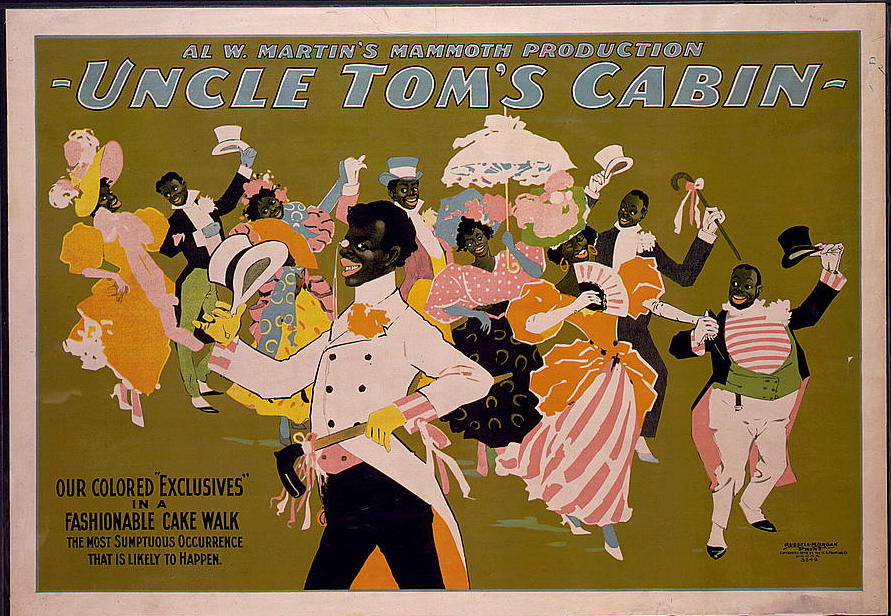Aunt Phillis’s Cabin, a pro-slavery response to Uncle Tom’s Cabin.
Were the exertions of the Abolitionists successful, what would be the result? The soul sickens at the thought. Scenes of blood and horror—the desolation of our fair Southern States—the final destruction of the negroes in them. This would be the result of immediate emancipation here. ”
– Excerpt From: Mary H. Eastman. “Aunt Phillis’s Cabin; Or, Southern Life As It Is.”
The kickback against Harriet Beecher Stowe’s Uncle Tom’ Cabin (1852) was fierce, desperate, smearing on the grease of self-justification with a shovel. Stowe (June 14, 1811 – July 1, 1896) issued a “Key” to Uncle Tom’s Cabin that cited sources for every atrocity detailed in the novel. A Key to Uncle Tom’s Cabin (Presenting the Original Facts and Documents Upon Which the Story is Founded Together with Corroborative Statements Verifying the Truth of the Work) features “trial transcripts, letters, and page after page after page of news items – editorials, legal notices and advertisements – that form the factual background upon which she hangs a fictional tale”.
But Mary Eastman would not be swayed from the belief that the slave’s lot was not unhappy, human bondage was benign and life in the South represented the natural order of God-made things. Slavery was ordained by God and sanctioned by Scripture. To Stowe and her self-declared “vocation to preach on paper”, Christianity was the main means of black integration. But the God of slavery was not open to persuasion, closed to the idea that freedom, as PJ O’Rourke defined it, is “the right to do as you damn well please. And with it comes the only basic human duty, the duty to take the consequences.” To Eastman slavery was empowering, enlightening, a partnership between needy, simple-minded blacks and needed, knowing whites. To anyone sane it was extermination.
As Eastman writes in a long and winding Preface to her book Aunt Phillis’s Cabin; Or, Southern Life As It Is (1852):
However inexplicable may be the fact that God would appoint the curse of continual servitude on a portion of his creatures, will any one dare, with the Bible open in his hands, to say the fact does not exist? It is not ours to decide why the Supreme Being acts! We may observe his dealings with man, but we may not ask, until he reveals it, Why hast thou thus done?..
Open your Bible, Christian, and read the commands of God as regards slavery—the laws that he made to govern the conduct of the master and the slave!
Could anyone write a book to mobilise the pro-slavery movement through literature as well as Stowe had, in the words of Frederick Douglass, “baptized with holy fire myriads who before cared nothing for the bleeding slave”? No. But they tried to. (Measuring the power of a book is no exact science; words are reevaluated – was it Frederick Douglass who first used the term “Uncle Tom” as a “pejorative epithet denoting the shuffling docility of a submissive black man”?)
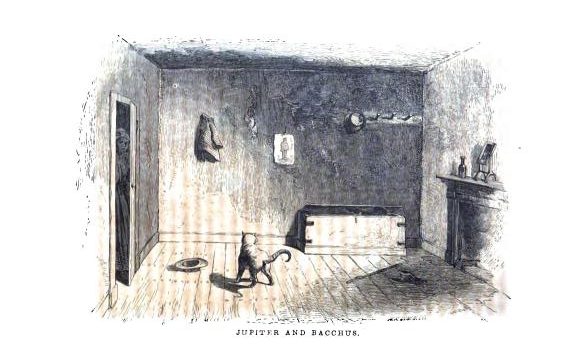
Fullpage illustration for Aunt Phillis’s Cabin; or, Southern Life As It Is, by Mrs. Mary H. Eastman. (Via)
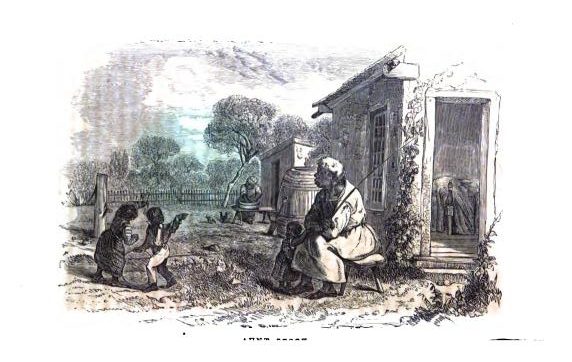
Fullpage illustration for Aunt Phillis’s Cabin; or, Southern Life As It Is, by Mrs. Mary H. Eastman.
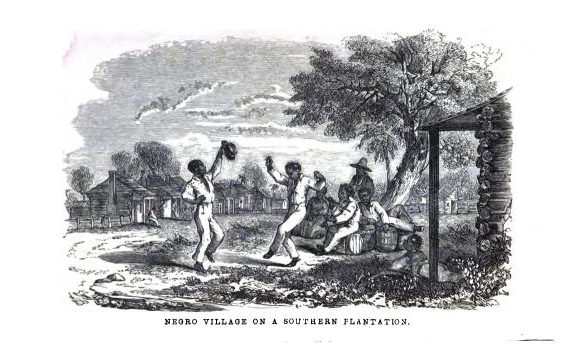
Fullpage illustration for Aunt Phillis’s Cabin; or, Southern Life As It Is, by Mrs. Mary H. Eastman.
In another pro-slavery reaction to Stowe’s work, Frank Freeman’s Barber Shop: A Tale by Rev. Baynard Rush. Hall (1852), we meet Dinah, a slave born in Africa as “heathen” but dying a redeemed Christians, grateful to slavery for saving her soul:
Dinah smiled, as she beckoned to Mr. Leamington, who was advancing, and she then took his hand, which she raised to her lips and kissed most affectionately, saying faintly,
“Farewell!—most kind massa! I going home, massa! I soon see you dar!”
…
A prayer followed the hymn, offered by Mr. Leamington, master in one sense, servant in another; at the end of which the train turned towards the parsonage, and—
The negress awaited the Resurrection!
It’s much the same in Uncle Robin in His Cabin in Virginia, And Tom Without One in Boston By J. W. Page (Richmond: J. W. Randolph, 1853). Here too a slave named Dinah is dying:
When the Doctor returned, he found Mrs. Boswell waiting breakfast for him.
“My dear, he observed, I think old Aunt Juno is not long for this world. She seems to be going out like a candle in its socket. I am much pleased to find that she is aware of her situation, and that she is perfectly willing to go. She is a child of God, snatched from heathenism by his grace vouchsafed to the pious labours of my dear mother.”
“My dear husband, what a beautiful thought it is that a poor African, once condemned to be eaten by cannibals, should be now on her death-bed, in a Christian country, surrounded by Christian friends, and rejoicing in the assurance of eternal salvation, procured by the death of her Saviour!”
…
In A Defense of Southern Slavery by a Southern Clergyman (1851), we encounter Episcopalian Bishop William Meade, whose address to the enslaved is worth reading:
“Having thus shewn you the chief duties you owe to your great Master in heaven, I now come to lay before you the duties you owe to your masters and mistresses here upon earth. And for this you have one general rule, that you ought always to carry in your minds, and that is, to do all service for them as if you did it for God himself. Poor creatures! you little consider when you are idle and neglectful of your masters’ business; when you steal, and waste, and hurt any of their substance; when you are saucy and impudent; when you are telling them lies and deceiving them; or when you prove stubborn and sullen, and will not do the work you are set about without stripes and vexation—you do not consider, I say, that what faults you are guilty of towards your masters and mistresses, are faults done against God himself, who hath set your masters and mistresses over you in His own stead, and expects that you will do for them just as you would do for Him.
“And pray do not think that I want to deceive you when I tell you that your masters and mistresses are God’s overseers, and that, if you are faulty towards them, God himself will punish you severely for it in the next world, unless you repent of it, and strive to make amends by your faithfulness and diligence for the time to come…”
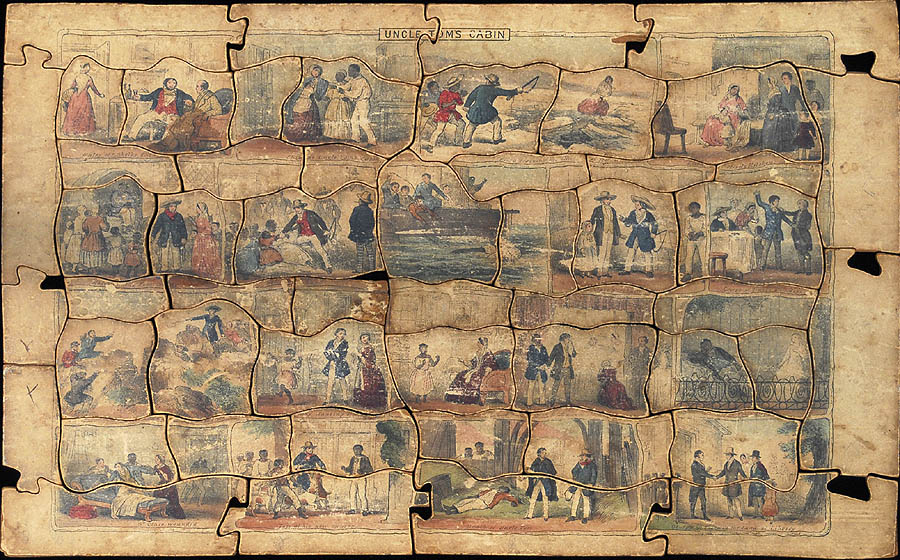
Uncle Tom’s Cabin captured the imagination: This 52-piece puzzle was most likely made in England in the early 1850s
![Fullpage magazine ad for fountain pen, The Inkograph Co., Inc., New York (n.d. [c. 1945] and no indication of periodical source. Caption: "Uncle Tom & Little Eva awritin'..." Eva, Tom.](https://flashbak.com/wp-content/uploads/2018/05/toad4.jpg)
Full page magazine ad for a fountain pen, The Inkograph Co., Inc., New York – c. 1945 – “Uncle Tom & Little Eva awritin’…” Eva, Tom.
Playing the brutal game to someone else’s rules is fine so long as the Other is divine and you are their chosen police force. We are all of us helpless in the scheme of life, said Eastman, but if it was her duty to hold the gun, the whip and the certificate of purchase, then so be it. This was her Cross to bare. White owner and black slave were equally helpless in the trap.
In 1970, American author James Baldwin explained the legacy:
“You’ve been taught that you’re inferior so you act as though you’re inferior. And on the level that is very difficult to get at, you really believe it. And, of course, all the things you do to prove you’re not inferior only really prove you are. They boomerang… You’re playing the game according to somebody else’s rules, and you can’t win until you understand the rules and step out of that particular game, which is not, after all, worth playing…Once people know what they know, they make the unconscious assumption that they were born knowing what they know, and forget that they had to learn everything they know… If the world tells you how you are going to be treated, you are in trouble.”
Eastman’s long reply to Stowe’s work became Aunt Phillis’s Cabin, or, Southern Life As it Is (1852). It was a bestseller. Lippincott, Grambo & Co. of Philadelphia (better known as J. B. Lippincott & Co.) sold up to 30,000 copies. (Uncle Tom’s Cabin would soon sell ten times as many.) Eastman’s publishers released other anti-Tom novels, including Antifanaticism: A Tale of the South by Martha Haines Butt (1853), and Mr. Frank, the Underground Mail-Agent by Vidi (1853).
Eastman addressed they who would would defy nature:
I do not intend to give a history of Abolition. Born in fanaticism, nurtured in violence and disorder, it exists too. Turning aside the institutions and commands of God, treading under foot the love of country, despising the laws of nature and the nation, it is dead to every feeling of patriotism and brotherly kindness; full of strife and pride, strewing the path of the slave with thorns and of the master with difficulties, accomplishing nothing good, forever creating disturbance.
And she addressed Stowe directly in ‘Concluding Remarks:
Beecher Stowe: “The worst use you can put a man to is to hang him.” She thinks slavery is worse still; but when “I think of every thing,” I am forced to differ from her.
The most of our Southern slaves are happy, and kindly cared for; and for those who are not, there is hope for the better. But when a man is hung up by the neck until he is dead, he is done for. As far as I can see, there is nothing that can be suggested to better his condition.I have no wish to uphold slavery. I would that every human being that God has made were free, were it in accordance with His will;—free bodily, free spiritually—”free indeed!”
Neither do I desire to deny the evils of slavery, any more than I would deny the evils of the factory system in England, or the factory and apprenticeship system in our own country. I only assert the necessity of the existence of slavery at present in our Southern States, and that, as a general thing, the slaves are comfortable and contented, and their owners humane and kind.
Were the exertions of the Abolitionists successful, what would be the result? The soul sickens at the thought—scenes of blood and horror—the desolation of our fair Southern States—the final destruction of the negroes in them. This would be the result of immediate emancipation here. What has it been elsewhere? Look at St. Domingo. A recent visitor there says, “Though opposed to slavery, I must acknowledge that in this instance the experiment has failed.” He compares the negroes to “a wretched gibbering set, from their appearance and condition more nearly allied to beasts than to men.”
…
Let the people of the North take care of their own poor.
Let the people of the South take care of theirs.
Let each remember the great and awful day when they must render a final account to their Creator, their Redeemer, and their Judge.
Amen. And God help us all.
Would you like to support Flashbak?
Please consider making a donation to our site. We don't want to rely on ads to bring you the best of visual culture. You can also support us by signing up to our Mailing List. And you can also follow us on Facebook, Instagram and Twitter. For great art and culture delivered to your door, visit our shop.
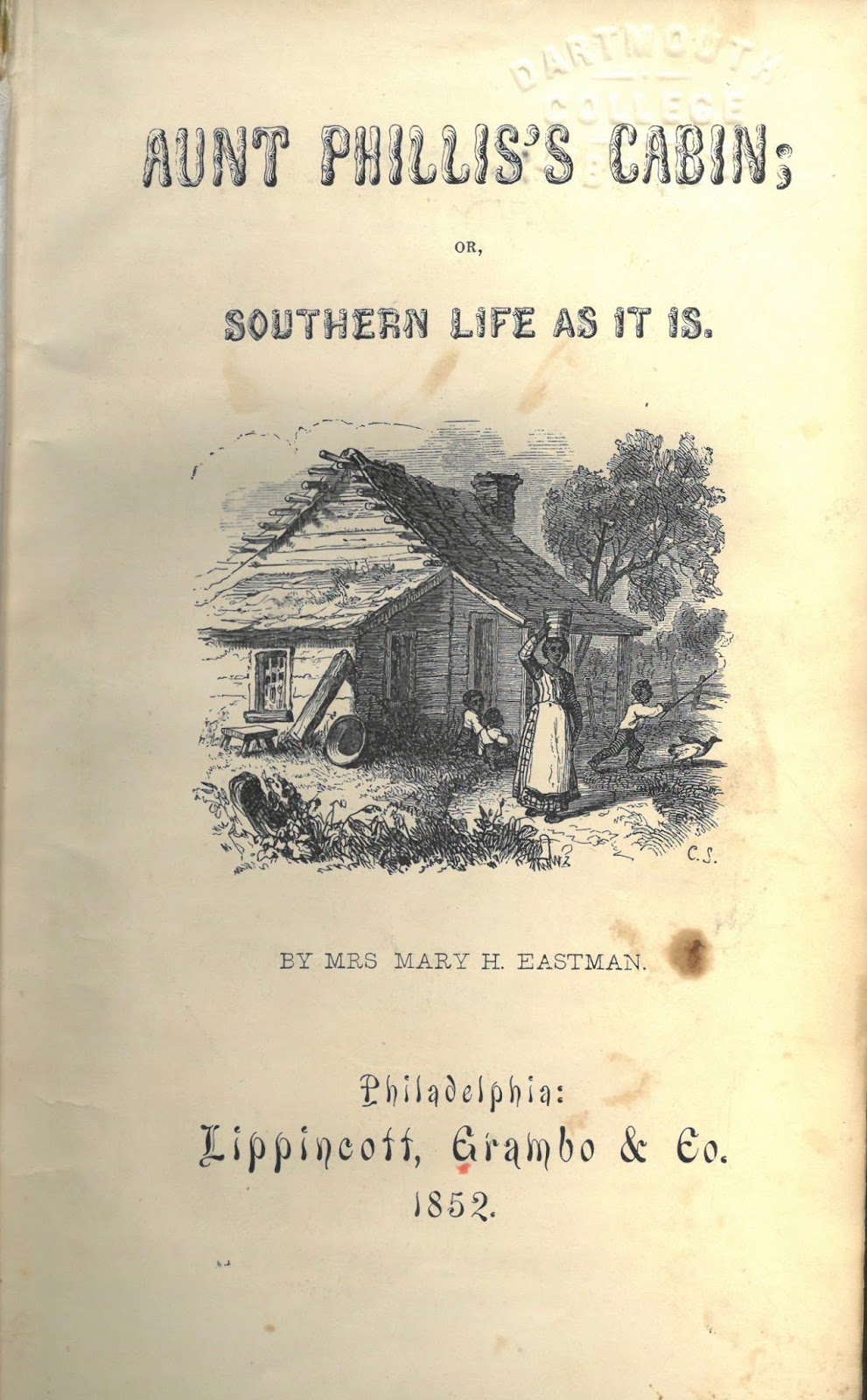
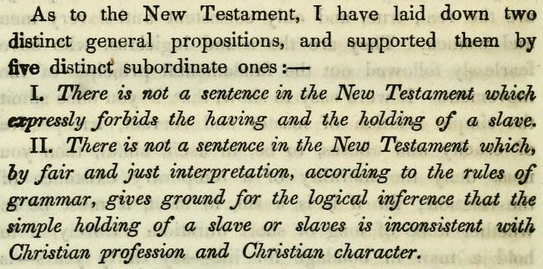
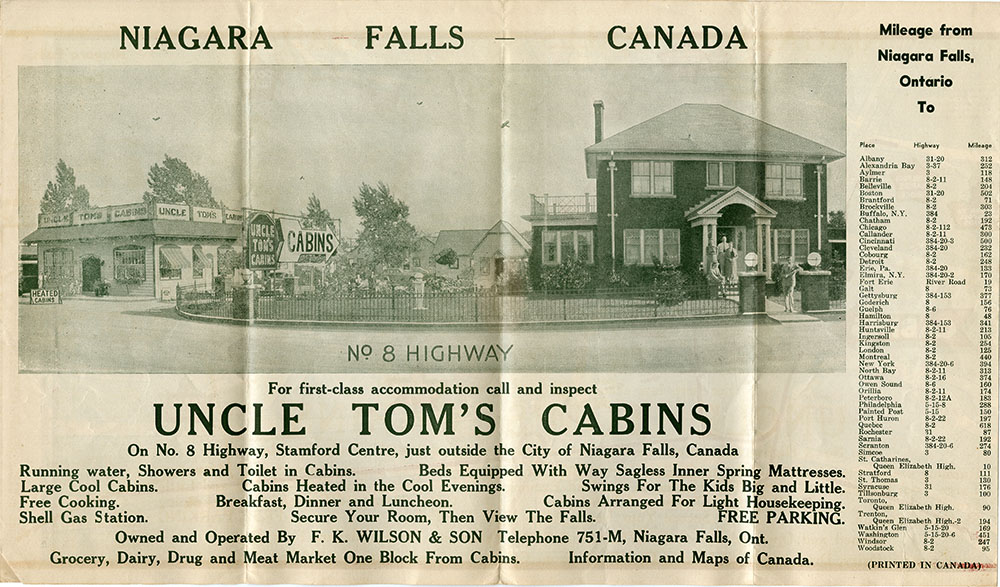
![Little Eva's Temptation, "Topsy" Author: Place:Newport, Kentucky Publisher:D. L. Co Date:[c. 1900]](https://flashbak.com/wp-content/uploads/2018/05/Little-Evas-Temptation-22Topsy22-Author-Place-Newport-Kentucky-Publisher-D.-L.-Co-Date-c.-1900.jpg)
